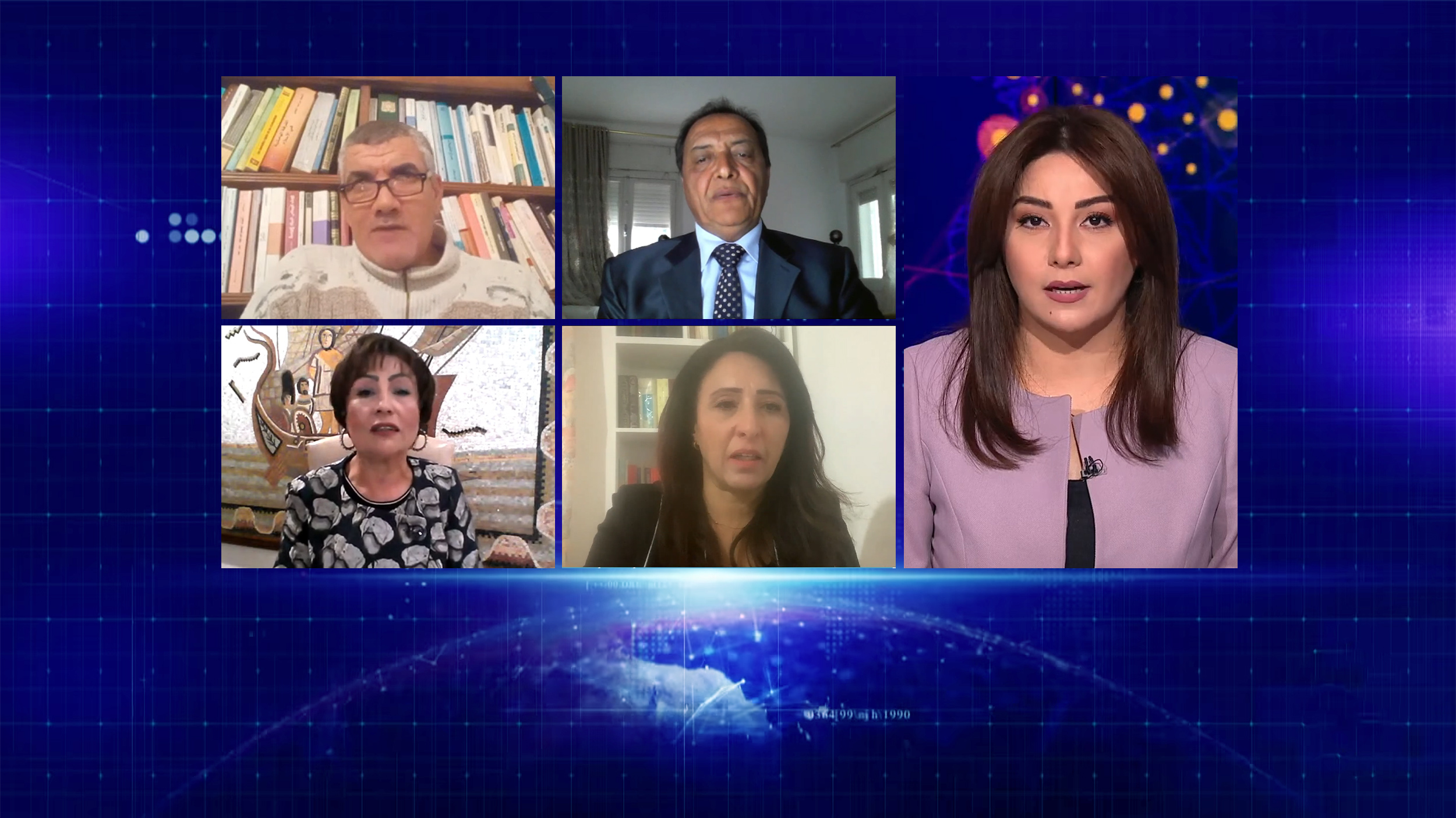
Al Jazeera Centre for Studies and Al Jazeera Mubasher hosted a webinar under the title, “The Tunisian elections: A mass boycott, unprecedented reluctance and a crisis without prospects,” on Thursday, 29 December 2022. Speaking in it were Noureddine Alaoui, professor of sociology at the Tunisian University; Hedi Ghiloufi, an academic and political analyst; Lamia Khamiri, member of the National Front for Salvation; Jannet Ben Abdallah, a writer specialising in economics and international commerce; and Sabri Zaghidi, a journalist and political analyst. The webinar was moderated by Al Jazeera Mubasher presenter Samaa Alsabi.
The webinar presented an in-depth reading of the results of the Tunisian legislative elections that took place on 17 December 2022 as the last stop in the roadmap announced by President Kais Saied after the country undertook exceptional measures on 25 July 2021. These measures followed the organisation of a referendum on a new constitution; the cancellation of the 2014 constitution; and the dissolution of the parliament, the Supreme Judicial Council, and several constitutional bodies that had emerged in the post-revolution democratic transition.
The speakers analysed the indicators of the decline of participation in the elections, which has reached 11.2% - the lowest rate of participation in the history of Tunisian elections. They also discussed whether this rate could undermine the legitimacy of the president and the parliament that will be formed based on his legitimacy as well as the legal and legislative system that he will establish.
In addition, the webinar examined the movement of the Tunisian public, aiming to predict reactions towards suffocating economic, social and political crises afflicting it with the closure of outlets of dialogue between the de facto authority and the political and social opposition. It also looked into the way in which the president will face the challenges of the upcoming phase given the popular and political isolation mentioned above as well as whether the political opposition has the ability to be a convincing alternative for the Tunisian public.
Through dialogue and discussion, the webinar concluded that voters’ reluctance at that unprecedented rate was expected by most political and intellectual elites, and that the message the voters boycotting the elections sent was clear: the country can follow neither President Kais Saied’s current approach nor the opposition’s past approach.
Moreover, the speakers asserted that disappointment, despair and frustration are prevalent in Tunisia because the people had hoped for economic feats and solutions to their living problems, and Saied’s coup only exacerbated them.
The webinar also explained that the results of the recent elections have complicated the political crisis even further, and predicted that the situation in Tunisia will only get worse on every level. It attributed this to the fact that “the president and the circle around him do not have solutions for the short and medium terms.” The webinar also indicated that for a short time prior to the elections, Saied was "in a state of complete denial about his true influence," and that after those "measly" results, he realised how severely his popularity had eroded.
Correspondingly, the webinar explained how disappointed the Tunisian people are in the president after having believed they elected a university professor specialising in constitutional law who would therefore be a protector of the constitution and legitimate institutions, only for him to prove otherwise. This, the webinar argued, is the “beginning of the end” of Saied’s rule.
On the other hand, the webinar maintained that the opposition was not united before 25 July 2021, and that since the coup, there has been hope for its unification so that the country can overcome the miserable state it is in and the dead-ends that obstruct its course.
The webinar pointed out that the economic factor in president’s proposal is absent, and Tunisians therefore have lost hope that he can change their dire economic reality. In fact, it mentioned that with the first loan from the International Monetary Fund of $1.7 billion, the IMF imposed conditions on Tunisia, causing the Central Bank to lose its independence and the country's economic fate dependent on foreign parties.
Additionally, the webinar revealed that the government did not stop to assess the economic course, and instead insisted on completing the structural reforms programme, whose features include the austerity policy that has exhausted the Tunisian people. It added that the new finance law of 2022 adopts foreign loans as basic financing for the state budget and does not view economic dynamism as a means of financing the economy.
It clarified that the Tunisian public, civil society institutions and trade unions reject the consequences of the $4 billion loan currently being negotiated with the IMF. What, the webinar asked, is the value of this small loan for a “dying economy”?
Regarding ways to get out of the political and economic crisis that Tunisia is currently experiencing, the webinar suggested that any vision for a solution must be based on the 2014 constitution in order it to be legitimate. It explained that the steps to achieve this begin with the return to the 2014 constitution as one of the most important achievements of the revolution, and then the return of a legitimate parliament. Afterwards, the parliament would authorise its speaker or one of its members to head the country during the transitional period, and new legislative and presidential elections would be held according to a new electoral law. The elites that are hostile to the Islamist trend in Tunisia should not fear the political participation of Islamists because they are an integral component of the political spectrum that cannot be eradicated or excluded.
The webinar summed up its discussions by affirming that without the path based on the 2014 constitution, the country will remain in a state of political and economic loss and social conditions will remain gloomy.
For more details, the webinar can be watched (in Arabic) here.